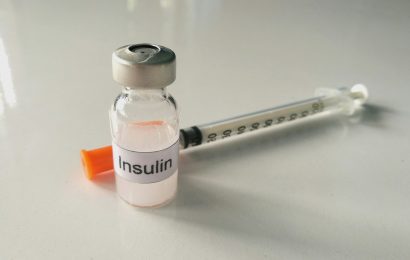Fatigue is so important. I was going to write a whole book about it, but I’m too tired. So what to do? Fortunately, it turns out there are many ways to overcome fatigue.
That’s good news, because people with diabetes are often fatigued, and it’s disabling. As I discussed two weeks ago, blood sugar levels that are too high or too low will cause fatigue. Other diabetes-related causes are inflammation, lack of sleep, insulin resistance, infections, circulation problems, medication side effects, depression, and stress. Low thyroid and low testosterone levels also cause fatigue and are common in people with diabetes.
So what to do depends partly on the causes. Still, many fatigued people would benefit from moving more. I know that sounds crazy. When you’re exhausted, who wants to exercise? But I’m not talking about vigorous training for a triathlon kind of exercise. I’m talking about treating yourself gently, and moving your body in ways that feel good. Studies show that gentle exercise reduces fatigue by up to 65%. Gentle exercise is actually more energizing than vigorous exercise, according to this University of Georgia study.
It could be tai chi or qigong, water exercise, yoga, walking, or seated exercises, or anything else that feels good. I have a lake near me, where it’s fun to go watch the birds. Maybe you have a place like that to walk. Or a mall or something.
Being completely sedentary makes you more tired. You get more out of shape, so it gets harder and harder to move. To feel better, you don’t even need formal exercise. Housework can be turned into a form of exercise just by concentrating on the movements as you do them, instead of stressing about how dirty everything is. Fatigue specialist Majid Ali, MD, says that exercise should be “slow, sustained, and nontraumatic.”
In fact, I think treating fatigue means being gentle. All the demands we put on ourselves help cause the fatigue in the first place. Can we cut back on work or other demands to make space for activity, pleasure, self-care, and rest? If we only slow down when our bodies stop us through fatigue or pain, it’s pretty likely they will do that more often. That also applies to being gentle with our feelings. Beating yourself up is a good way to tell your body that it’s not worth trying very hard.
Nutrition is another key to energy level. Refined carbs are known for causing fatigue, after an initial energy rush. A reader named Kat commented that since she started “juicing green leafy vegetables in the morning, with some wheatgrass…and started eating lots of protein [in the morning]…eating a higher protein/fat, lower carbohydrate diet, I have shaken off that really sleepy/extreme fatigue that I used to have every day.”
And Carol posted that vitamin B12 and chromium were helping her energy. Low magnesium seems to tire people and throw blood sugar levels off, so you might want to try supplementing that. Same for vitamins B12 and D.
Fatigue can be hard to separate from depression. If you don’t feel you have a reason to get out of bed, or if you think that most things are going to be unpleasant and/or hard, you might just as well stay asleep. One reader commented, because of depression, “my motivation is almost nil.”
But having something you love to do can energize. I know an artist named Albert who started doing ceramic sculpture at the age of 75, when he was already sick and disabled with diabetes complications. He loves it so much that he says, “I can’t wait to get out of bed in the morning.” He just had his first gallery show at 84 years of age. Children and animals are good motivators and sources of love for many of us.
Some Ideas for Overcoming Fatigue
• Keep a log with four columns: date/time, energy level on a scale of 1–10 (with 10 being Superman and 1 being exhausted), what you ate, and what else was happening. If you check your blood sugar levels, put those in too. Record your levels three or four times a day.
• See what you notice; share it with your doctor, coach, educator, or friend.
• If your blood glucose levels are high (or too low), ask what you can do to bring them in line, whether it’s diet, exercise, or medicines.
• Get checked for anemia, as well as thyroid and testosterone deficiencies.
• Check with your pharmacist or doctor and research online whether the medicines you are taking can cause fatigue.
• Breathe — try to stop what you’re doing every couple of minutes and focus on your breathing for a few breaths.
• Do some kind of gentle movement like walking or tai chi.
• Think about what’s stressing you and see if you can improve the situation. Get help with it.
• Do some relaxation. Take breaks. Rest. Breathe.
• If possible, spend time with people or animals who make you feel alive, not the ones who wear you out. Maybe you can find a support group like that.
• Resist the madness — our society is all about more, more, more. Faster, faster. This approach would fatigue anyone. Let’s focus on quality of life over quantity of stuff done or acquired. Find your personal balance between work, play, improvement, and rest.




